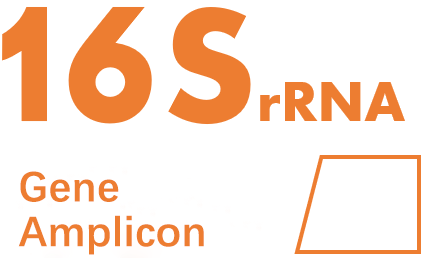Project Overview
P_ERP104714

Analysis_of_the_fecal_and_oral_microbiota_in_chronic_recurrent_multifocal_osteomyelitis
Visibility: PublicPublication: Background:Chronic_recurrent_multifocal_osteomyelitis_(CRMO)_is_a_rare_autoinflammatory_bone_disease_for_which_a_lack_of_bacterial_involvement_is_a_key_diagnostic_feature_to_distinguish_it_from_other_symptomatically_related_diseases._However,the_growing_evidence_suggesting_an_involvement_of_the_host-associated_microbiota_in_rheumatic_disorders_together_with_the_now_wide_accessibility_of_modern_culture-independent_methods_warrant_a_closer_examination_of_CRMO._Methods:In_this_study,we_show_through_bacterial_16S_rRNA_gene_profiling_that_numerous_features_of_the_oral-_and_fecal_microbial_communities_differentiate_children_with_and_without_CRMO._Results:Notably,communities_in_diseased_children_are_characterized_by_a_lack_of_potential_probiotic_bacteria_in_the_fecal_community_and_an_overabundance_of_known_pathobionts_in_the_oral_microbial_communities._Of_special_interest_is_the_HACEK_group,a_set_of_commonly_known_oral_pathogens_that_are_implicated_in_the_development_of_several_acute_and_chronic_diseases_such_as_osteitis_and_rheumatoid_arthritis._Furthermore,we_observe_that_gut_bacterial_communities_in_the_diseased_children_appear_to_reflect_an_altered_host_physiology_more_strongly_than_the_oral_community,which_could_suggest_an_oral_disease_origin_followed_by_propagation_and/or_responses_beyond_the_oral_cavity._Conclusions:Bacterial_communities,in_particular_the_oral_microbiota,may_serve_as_an_indicator_of_underlying_susceptibility_to_CRMO,or_play_a_yet_undefined_role_in_its_development. Link
Source: NA
Sample Number: 89
Samples in this project
| SampleID | Type | Habitat | Year | Sequence type | MNS1 | MAS2 |
|---|---|---|---|---|---|---|
| S_ERP104714.ERR2442453 | Oral | Saliva | 2014 | 16S_V1-V2 | - | - |
| S_ERP104714.ERR2442450 | Gut | Feces | 2013 | 16S_V1-V2 | - | - |
| S_ERP104714.ERR2442451 | Oral | Saliva | 2013 | 16S_V1-V2 | - | - |
| S_ERP104714.ERR2442452 | Gut | Feces | 2014 | 16S_V1-V2 | - | - |
| S_ERP104714.ERR2442383 | Gut | Feces | 2013 | 16S_V1-V2 | - | - |
| S_ERP104714.ERR2442384 | Oral | Saliva | 2013 | 16S_V1-V2 | - | - |
| S_ERP104714.ERR2442385 | Gut | Feces | 2013 | 16S_V1-V2 | - | - |
| S_ERP104714.ERR2442386 | Oral | Saliva | 2013 | 16S_V1-V2 | - | - |
| S_ERP104714.ERR2442387 | Gut | Feces | 2013 | 16S_V1-V2 | - | - |
| S_ERP104714.ERR2442388 | Oral | Saliva | 2013 | 16S_V1-V2 | - | - |
| S_ERP104714.ERR2442389 | Gut | Feces | 2014 | 16S_V1-V2 | - | - |
| S_ERP104714.ERR2442390 | Oral | Saliva | 2014 | 16S_V1-V2 | - | - |
| S_ERP104714.ERR2442391 | Gut | Feces | 2013 | 16S_V1-V2 | - | - |
| S_ERP104714.ERR2442392 | Oral | Saliva | 2013 | 16S_V1-V2 | - | - |
| S_ERP104714.ERR2442393 | Gut | Feces | 2013 | 16S_V1-V2 | - | - |
| S_ERP104714.ERR2442394 | Oral | Saliva | 2013 | 16S_V1-V2 | - | - |
| S_ERP104714.ERR2442395 | Gut | Feces | 2013 | 16S_V1-V2 | - | - |
| S_ERP104714.ERR2442396 | Oral | Saliva | 2013 | 16S_V1-V2 | - | - |
| S_ERP104714.ERR2442397 | Gut | Feces | 2013 | 16S_V1-V2 | - | - |
| S_ERP104714.ERR2442398 | Oral | Saliva | 2013 | 16S_V1-V2 | - | - |
1MNS (Microbiome Novelty Score): < 0.12: Non-novel; 0.12-0.2: Novel; > 0.2: Very novel; -: NA for samples before 2010
2MAS (Microbiome Attention Score): < 10: Low-attention; ≥ 10: High-attention; -: NA for samples before 2010
 Microbiome Search Engine
Microbiome Search Engine